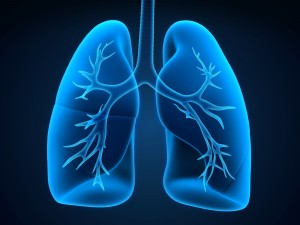-
 Minnesota
MinnesotaCOPD Takes the Breath Away; Treatment Can Prevent Worsening
ROCHESTER, Minn. — July 19, 2012. Chronic obstructive pulmonary disease (COPD) literally takes one's breath away and is a leading cause of death in the United States. COPD refers to a group of lung diseases that limit airflow during exhalations, making it increasingly difficult to breathe out. COPD includes chronic bronchitis and emphysema. Most people with COPD have both.

The July issue of Mayo Clinic Health Letter provides an overview of COPD, including causes, symptoms and treatment options.
Causes — COPD is usually attributed to exposure to tobacco smoke and airborne irritants over a long period of time. Most often, it occurs in long-term or former smokers.
Symptoms — Persistent shortness of breath and chronic cough lasting more than three to six weeks may signal COPD. Other symptoms may include wheezing, chest tightness and sputum or phlegm production. Symptoms usually progress slowly — more slowly in people who have stopped smoking, and faster when smoking continues.
Diagnosis — Pulmonary function tests are key in diagnosing COPD. A patient blows into a device called a spirometer that measures how much air lungs exhale and how quickly. This tool also helps monitor how well treatments are working.
Treatment — Doctors recommend treatments to minimize further damage, control symptoms and prevent a sudden worsening of COPD, called an exacerbation. Without prompt treatment, exacerbations may lead to lung failure and the need for hospitalization.
The first step in treatment is to stop exposure to lung irritants, including tobacco smoke. Patients who stop smoking have fewer symptoms and may see slightly improved lung function. Physical activity is critically important, too. Research shows that people with COPD who exercise do better overall.
Other treatments may include:
- Bronchodilator medications including albuterol, ipratropium (Atrovent) and others that relax muscles around the airways.
- Inhaled corticosteroids to reduce airway inflammation and prevent sudden exacerbations.
- Antibiotics to fight respiratory infections and help prevent flare-ups of COPD
Even with treatment, damage done to the lungs by COPD isn't fully reversible. But when the disease is detected early, COPD management improves symptoms and survival.
Mayo Clinic Health Letter is an eight-page monthly newsletter of reliable, accurate and practical information on today's health and medical news. To subscribe, please call 800-333-9037 (toll-free), extension 9771, or visit Mayo Clinic Health Letter Online.
###
About Mayo Clinic:
Recognizing 150 years of serving humanity in 2014, Mayo Clinic is a nonprofit worldwide leader in medical care, research and education for people from all walks of life. For more information, visit 150years.mayoclinic.org, www.mayoclinic.org and newsnetwork.mayoclinic.org.
Media Contact: Ginger Plumbo, 507-284-5005 (days), newsbureau@mayo.edu







